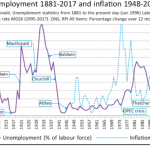Recruiting Strategies for Finance Teams in 2025: Navigating the Talent Shortage
The Evolving Landscape of Finance Recruitment
Shifting Demographics and Workforce Expectations
The finance industry is experiencing a significant shift in workforce demographics. As Baby Boomers retire, Millennials and Generation Z are becoming the dominant groups in the workforce. These younger generations bring different expectations and values, such as a desire for work-life balance, flexibility, and meaningful work. Finance teams must adapt their recruitment strategies to attract and retain these individuals by offering competitive benefits, remote work options, and opportunities for professional development.
Technological Advancements and Digital Transformation
The rapid pace of technological advancement is reshaping the finance sector. Automation, artificial intelligence, and data analytics are becoming integral to financial operations. This digital transformation requires finance professionals to possess a blend of traditional financial skills and technological proficiency. Recruiters must seek candidates who are not only financially savvy but also adept at using technology to drive efficiency and innovation within their organizations.
Increasing Demand for Specialized Skills
As the finance industry evolves, there is a growing demand for specialized skills. Roles such as data analysts, cybersecurity experts, and financial technologists are becoming increasingly important. Finance teams need to focus on recruiting individuals with these niche skills to stay competitive. This shift necessitates a more targeted approach to recruitment, with an emphasis on identifying and attracting candidates with the specific expertise required to meet the challenges of a rapidly changing financial landscape.
Globalization and Diverse Talent Pools
Globalization has expanded the talent pool for finance teams, allowing organizations to tap into a diverse range of candidates from around the world. This diversity brings a wealth of perspectives and ideas, fostering innovation and creativity. However, it also presents challenges in terms of managing a multicultural workforce and navigating different regulatory environments. Finance recruiters must develop strategies to effectively engage and integrate diverse talent, ensuring that their teams are equipped to operate in a globalized economy.
The Role of Employer Branding and Corporate Culture
In a competitive job market, employer branding and corporate culture play a crucial role in attracting top talent. Finance organizations must cultivate a strong employer brand that reflects their values, mission, and work environment. A positive corporate culture that prioritizes employee well-being, diversity, and inclusion can be a powerful tool in recruitment efforts. By showcasing their commitment to these principles, finance teams can differentiate themselves and appeal to candidates who are seeking more than just a paycheck.
Understanding the Talent Shortage in Finance
Current State of the Finance Talent Market
The finance industry is experiencing a significant talent shortage, characterized by a growing gap between the demand for skilled professionals and the available supply. This shortage is driven by several factors, including the rapid evolution of financial technologies, increased regulatory requirements, and the globalization of financial markets. As a result, finance teams are struggling to find candidates with the necessary skills and experience to meet their needs.
Factors Contributing to the Talent Shortage
Technological Advancements
The finance sector is undergoing a digital transformation, with technologies such as artificial intelligence, blockchain, and data analytics reshaping the industry. These advancements require finance professionals to possess a new set of skills, including proficiency in data analysis, cybersecurity, and digital literacy. The rapid pace of technological change has outstripped the ability of many educational institutions to update their curricula, leading to a skills gap in the workforce.
Demographic Shifts
An aging workforce is another factor contributing to the talent shortage in finance. Many experienced finance professionals are reaching retirement age, and there are not enough younger workers to fill their positions. This demographic shift is exacerbated by a lack of interest in finance careers among younger generations, who may be drawn to other industries perceived as more dynamic or innovative.
Regulatory and Compliance Demands
The increasing complexity of regulatory and compliance requirements in the finance industry has created a demand for professionals with specialized knowledge in these areas. As governments and regulatory bodies continue to implement new rules and standards, finance teams need individuals who can navigate these changes and ensure compliance. However, the pool of candidates with the necessary expertise is limited, contributing to the talent shortage.
Impact on Finance Teams
Increased Competition for Talent
The talent shortage has led to intense competition among finance organizations to attract and retain skilled professionals. Companies are offering higher salaries, signing bonuses, and enhanced benefits packages to lure top talent. This competition is particularly fierce for roles that require specialized skills, such as data scientists and compliance officers.
Strain on Existing Workforce
With fewer qualified candidates available, existing finance team members are often required to take on additional responsibilities, leading to increased workloads and potential burnout. This strain can result in decreased productivity and job satisfaction, further exacerbating the talent shortage as employees leave for better opportunities.
Challenges in Innovation and Growth
The lack of skilled talent can hinder a finance organization’s ability to innovate and grow. Without the right people in place, companies may struggle to implement new technologies, develop innovative financial products, or expand into new markets. This can put them at a competitive disadvantage in an increasingly dynamic and globalized industry.
Leveraging Technology and AI in Recruitment
Transforming Candidate Sourcing
AI-driven tools are revolutionizing the way finance teams source candidates. These tools can analyze vast amounts of data to identify potential candidates who may not be actively seeking new opportunities but possess the skills and experience required for finance roles. By utilizing AI algorithms, recruiters can efficiently scan resumes, social media profiles, and professional networks to create a pool of qualified candidates. This not only speeds up the sourcing process but also ensures a more diverse and inclusive candidate pool.
Enhancing Candidate Screening
AI technology can significantly enhance the candidate screening process by automating the initial stages of recruitment. AI-powered chatbots and virtual assistants can conduct preliminary interviews, assess candidate responses, and evaluate their fit for the role based on predefined criteria. This allows recruiters to focus on more strategic tasks, such as engaging with top candidates and building relationships. AI can also help in reducing unconscious bias by standardizing the evaluation process and ensuring that all candidates are assessed based on the same criteria.
Streamlining Interview Processes
The integration of AI in interview processes can lead to more efficient and effective recruitment. AI tools can assist in scheduling interviews, sending reminders, and even conducting video interviews with real-time analysis of candidate responses. These tools can evaluate verbal and non-verbal cues, providing insights into a candidate’s communication skills, confidence, and cultural fit. This data-driven approach helps finance teams make more informed hiring decisions and reduces the time-to-hire.
Predictive Analytics for Talent Acquisition
Predictive analytics is becoming a crucial component in recruitment strategies for finance teams. By analyzing historical hiring data and current market trends, AI can predict future hiring needs and identify potential skill gaps within the organization. This allows finance teams to proactively plan their recruitment efforts and develop targeted strategies to attract the right talent. Predictive analytics can also help in forecasting candidate success and retention, enabling recruiters to make data-driven decisions that align with long-term business goals.
Improving Candidate Experience
AI technology plays a vital role in enhancing the candidate experience throughout the recruitment process. Personalized communication, timely updates, and seamless interactions with AI-driven platforms ensure that candidates feel valued and engaged. AI can provide candidates with instant feedback, answer their queries, and guide them through the application process, creating a positive impression of the organization. A superior candidate experience not only attracts top talent but also strengthens the employer brand in the competitive finance industry.
Leveraging Data-Driven Insights
The use of AI in recruitment provides finance teams with valuable data-driven insights that can optimize their hiring strategies. By analyzing recruitment metrics such as time-to-fill, cost-per-hire, and candidate quality, AI tools can identify areas for improvement and suggest actionable strategies. These insights enable finance teams to refine their recruitment processes, allocate resources more effectively, and achieve better outcomes in talent acquisition.
Building a Strong Employer Brand
Understanding Employer Branding
Employer branding is the process of promoting a company as the employer of choice to a desired target group, one which a company needs and wants to recruit and retain. In the context of finance teams, a strong employer brand can help attract top talent in a competitive market. It involves creating a positive image of the company as a great place to work, which is crucial in navigating the talent shortage expected in 2025.
Key Elements of a Strong Employer Brand
Company Culture
A well-defined company culture is at the heart of a strong employer brand. It encompasses the values, beliefs, and behaviors that shape the work environment. For finance teams, emphasizing a culture of integrity, innovation, and collaboration can be particularly appealing. Highlighting a commitment to ethical practices and continuous learning can attract candidates who value professional growth and ethical standards.
Employee Value Proposition (EVP)
The Employee Value Proposition is a unique set of benefits that an employee receives in return for the skills, capabilities, and experience they bring to a company. Crafting a compelling EVP for finance professionals might include competitive compensation, opportunities for career advancement, work-life balance, and access to cutting-edge financial technologies. Clearly communicating these benefits can differentiate your company from competitors.
Reputation and Trust
Building a reputation as a trustworthy and reliable employer is essential. This can be achieved through transparent communication, ethical business practices, and a commitment to employee well-being. Encouraging current employees to share their positive experiences on platforms like Glassdoor or LinkedIn can enhance your company’s reputation and build trust with potential candidates.
Strategies for Building and Promoting Your Employer Brand
Leveraging Social Media
Social media platforms are powerful tools for promoting your employer brand. Regularly sharing content that showcases your company culture, employee achievements, and community involvement can engage potential candidates. For finance teams, sharing insights into industry trends or thought leadership pieces can also position your company as a leader in the field.
Employee Advocacy
Encouraging employees to become brand ambassadors can significantly enhance your employer brand. Employees can share their positive experiences and insights about working at your company through personal networks and social media. Providing them with the tools and incentives to do so can amplify your brand message and reach a wider audience.
Engaging Content and Storytelling
Creating engaging content that tells the story of your company and its employees can humanize your brand and make it more relatable. This could include employee testimonials, behind-the-scenes videos, or blog posts about company events. For finance teams, highlighting stories of innovation, problem-solving, and teamwork can resonate with potential candidates.
Measuring and Adapting Your Employer Brand
Feedback and Surveys
Regularly collecting feedback from current employees through surveys or focus groups can provide valuable insights into how your employer brand is perceived internally. This feedback can help identify areas for improvement and ensure that your brand message aligns with the actual employee experience.
Monitoring Online Presence
Monitoring your company’s online presence, including reviews on job sites and social media mentions, can help gauge the effectiveness of your employer branding efforts. Responding to feedback, both positive and negative, demonstrates a commitment to transparency and continuous improvement.
Adapting to Market Trends
The finance industry is constantly evolving, and so should your employer brand. Staying informed about industry trends and adapting your branding strategies accordingly can ensure that your company remains attractive to top talent. This might involve updating your EVP to include new benefits or highlighting different aspects of your company culture that align with current market demands.
Upskilling and Reskilling: Investing in Talent Development
Understanding the Need for Upskilling and Reskilling
The finance industry is undergoing rapid transformation driven by technological advancements, regulatory changes, and evolving market dynamics. As a result, finance teams are facing a talent shortage, with a growing demand for professionals who possess both traditional financial expertise and modern technological skills. Upskilling and reskilling have become essential strategies for organizations to bridge this skills gap and ensure their teams remain competitive and capable of meeting future challenges.
Identifying Key Skills for the Future
To effectively upskill and reskill finance teams, organizations must first identify the key skills that will be in demand in the coming years. These include:
- Data Analytics and Interpretation: As data becomes increasingly central to decision-making, finance professionals need to be adept at analyzing and interpreting complex datasets to provide actionable insights.
- Technological Proficiency: Familiarity with financial software, automation tools, and emerging technologies such as artificial intelligence and blockchain is crucial for modern finance roles.
- Strategic Thinking and Problem Solving: The ability to think strategically and solve complex problems is essential for navigating the rapidly changing financial landscape.
- Regulatory Knowledge: Staying updated with the latest regulatory requirements and compliance standards is vital for ensuring organizational adherence and avoiding legal pitfalls.
Developing a Comprehensive Training Program
Organizations should develop comprehensive training programs that cater to the diverse learning needs of their finance teams. This involves:
- Customized Learning Paths: Tailoring training programs to address the specific skill gaps and career aspirations of individual team members.
- Blended Learning Approaches: Combining online courses, workshops, and hands-on projects to provide a well-rounded learning experience.
- Mentorship and Coaching: Pairing employees with experienced mentors who can provide guidance, support, and real-world insights.
Leveraging Technology for Learning
Technology plays a pivotal role in facilitating upskilling and reskilling initiatives. Organizations can leverage:
- E-Learning Platforms: Utilizing online platforms that offer a wide range of courses and resources, allowing employees to learn at their own pace.
- Virtual Reality and Simulations: Implementing immersive learning experiences that simulate real-world financial scenarios, enhancing practical skills and decision-making abilities.
- AI-Driven Personalized Learning: Employing artificial intelligence to create personalized learning experiences that adapt to the unique needs and progress of each employee.
Measuring the Impact of Upskilling and Reskilling
To ensure the effectiveness of upskilling and reskilling efforts, organizations must establish metrics to measure their impact. This includes:
- Performance Metrics: Evaluating improvements in employee performance, productivity, and job satisfaction.
- Skill Assessment: Conducting regular assessments to track the development of new skills and identify areas for further improvement.
- Return on Investment (ROI): Analyzing the financial and strategic benefits of training programs to justify continued investment in talent development.
Diversity and Inclusion: Broadening the Talent Pool
Understanding the Importance of Diversity and Inclusion
In the context of a talent shortage, finance teams must recognize the critical role that diversity and inclusion (D&I) play in broadening the talent pool. Diverse teams bring a variety of perspectives, which can lead to more innovative solutions and improved decision-making. Inclusion ensures that all team members feel valued and are able to contribute fully, which enhances team performance and retention.
Expanding Recruitment Channels
To attract a diverse range of candidates, finance teams should expand their recruitment channels beyond traditional methods. This includes partnering with organizations that focus on underrepresented groups, attending job fairs at historically black colleges and universities (HBCUs), and utilizing online platforms that cater to diverse job seekers. By reaching out to a wider audience, companies can tap into a broader talent pool.
Implementing Bias-Free Recruitment Practices
Bias in recruitment can hinder diversity efforts. Finance teams should implement bias-free recruitment practices by using blind recruitment techniques, where identifying information is removed from applications. Structured interviews and standardized assessment criteria can also help ensure that candidates are evaluated based on their skills and experience rather than unconscious biases.
Creating an Inclusive Workplace Culture
An inclusive workplace culture is essential for retaining diverse talent. Finance teams should foster an environment where all employees feel respected and valued. This can be achieved through diversity training programs, employee resource groups, and mentorship opportunities. Leadership should also demonstrate a commitment to D&I by setting clear goals and holding themselves accountable for progress.
Leveraging Technology for D&I
Technology can be a powerful tool in promoting diversity and inclusion. AI-driven recruitment platforms can help identify diverse candidates and reduce bias in the hiring process. Additionally, data analytics can be used to track diversity metrics and identify areas for improvement. By leveraging technology, finance teams can enhance their D&I efforts and ensure they are making data-driven decisions.
Measuring the Impact of D&I Initiatives
To ensure that D&I initiatives are effective, finance teams should establish metrics to measure their impact. This includes tracking the diversity of new hires, retention rates of diverse employees, and employee satisfaction surveys. Regularly reviewing these metrics can help teams identify successful strategies and areas that need improvement, allowing them to continuously refine their approach to D&I.
Strategic Partnerships and Networking
Leveraging Industry Associations
Finance teams can benefit significantly from forming strategic partnerships with industry associations. These organizations often have access to a wide network of professionals and can provide valuable insights into industry trends and best practices. By collaborating with these associations, finance teams can tap into a pool of potential candidates who are already engaged and informed about the latest developments in the field. Partnerships with industry associations can also facilitate access to exclusive events, workshops, and seminars, which can be excellent venues for networking and talent scouting.
Collaborating with Educational Institutions
Building strong relationships with universities and colleges is a proactive way to address the talent shortage. Finance teams can work with educational institutions to develop tailored programs that align with industry needs, ensuring that graduates are well-prepared for the demands of the finance sector. These partnerships can include guest lectures, internship programs, and mentorship opportunities, which not only enhance the educational experience for students but also create a pipeline of qualified candidates for future recruitment.
Engaging with Professional Networks
Professional networks, both online and offline, are crucial for connecting with potential candidates. Platforms like LinkedIn offer vast opportunities for finance teams to engage with professionals who have the skills and experience they are seeking. By actively participating in relevant groups and discussions, finance teams can build relationships with potential candidates and establish their organization as an attractive employer. Offline, attending industry conferences and networking events can provide direct access to a pool of talented individuals who are actively seeking new opportunities.
Partnering with Recruitment Agencies
Recruitment agencies specializing in finance can be invaluable partners in navigating the talent shortage. These agencies have extensive databases of candidates and can provide insights into market trends and salary benchmarks. By working closely with recruitment agencies, finance teams can streamline their hiring processes and gain access to a broader range of candidates, including those who may not be actively seeking new roles but are open to the right opportunity.
Building a Strong Employer Brand
A strong employer brand is essential for attracting top talent in a competitive market. Finance teams should focus on building a reputation as an employer of choice by highlighting their organizational culture, values, and career development opportunities. Engaging in strategic partnerships and networking can enhance an organization’s visibility and credibility, making it more attractive to potential candidates. By showcasing success stories and employee testimonials through various channels, finance teams can effectively communicate their brand and attract the right talent.
Conclusion: Future-Proofing Finance Recruitment Strategies
Embrace Technological Advancements
Finance teams must leverage cutting-edge technologies to streamline recruitment processes. Implementing AI-driven tools can enhance candidate sourcing, screening, and engagement, allowing recruiters to focus on strategic decision-making. Automation can also reduce time-to-hire and improve the candidate experience by providing timely updates and feedback.
Cultivate a Diverse Talent Pool
Building a diverse workforce is crucial for innovation and problem-solving. Finance teams should actively seek candidates from varied backgrounds and experiences. This can be achieved by partnering with diverse professional organizations, attending inclusive job fairs, and implementing unbiased recruitment practices. A diverse team can better understand and serve a global client base.
Invest in Continuous Learning and Development
To attract top talent, finance organizations must offer robust learning and development opportunities. Providing access to training programs, certifications, and career advancement paths can make a company more attractive to prospective employees. Encouraging a culture of continuous learning ensures that the team remains adaptable and skilled in the face of industry changes.
Foster a Strong Employer Brand
A compelling employer brand can differentiate a company in a competitive job market. Finance teams should highlight their unique culture, values, and benefits to attract candidates who align with their mission. Utilizing social media, employee testimonials, and engaging content can effectively communicate the organization’s strengths and attract top talent.
Prioritize Employee Well-being and Work-life Balance
In an era where work-life balance is increasingly important, finance teams must prioritize employee well-being. Offering flexible work arrangements, mental health support, and wellness programs can enhance job satisfaction and retention. A supportive work environment not only attracts talent but also fosters long-term employee loyalty.
Build Strategic Partnerships
Collaborating with educational institutions, industry associations, and recruitment agencies can expand a finance team’s reach and access to talent. These partnerships can provide insights into emerging trends, facilitate internships and co-op programs, and create a pipeline of future finance professionals. Engaging with the broader finance community can also enhance the organization’s reputation as an employer of choice.
















